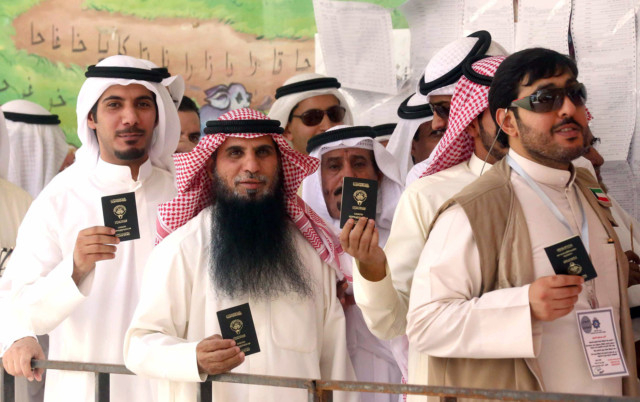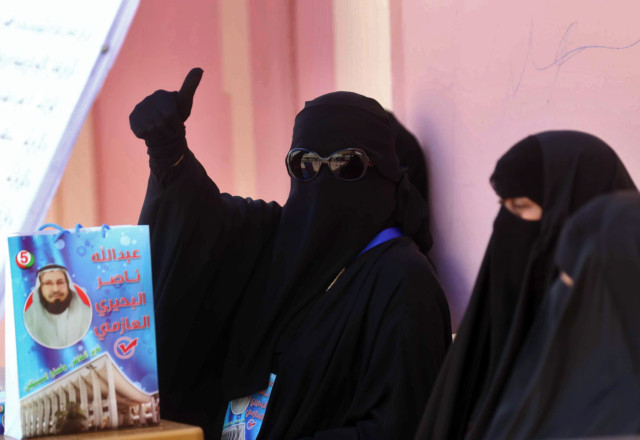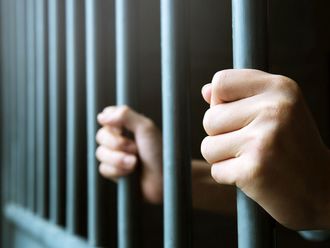
KUWAIT CITY: Kuwaitis voted on Saturday in the country’s second parliamentary election in eight months with turnout the key issue as the opposition urged a boycott.
Analysts see little hope the election will bring political stability to the nation, which has been rocked by lingering disputes since mid-2006, stalling development. Although Kuwait has the Gulf’s oldest elected parliament, all key government posts are held by members of the ruling Al Sabah family which has ruled the country without challenge for over 250 years.
An AFP correspondent saw few voters at a polling station in Al Qasia, just south of Kuwait City, when polls opened at 8am (0500 GMT) although turnout picked up later. Information Minister Shaikh Salman Humoud Al Sabah said turnout was high after visiting a polling station in Jahra, west of Kuwait City.
It was the first time that an election had been called in Kuwait during the Muslim holy month of Ramadan when the observant fast during the day. Daytime temperatures were forecast to hit 45 degrees Celsius in a further disincentive to voters. It was the second time that the opposition had called for a boycott in protest at an electoral law that it says enables the ruling Al Sabah family-controlled government to manipulate the outcome.
The law was ruled legal in June by the constitutional court, even though it dissolved parliament on procedural flaws and ordered Saturday’s election. But its judgement failed to satisfy the opposition, dashing hopes of an end to a deadlock between the two sides that has seen Kuwait go to the polls six times in as many years.
“I just hope this parliament completes its [four-year] term,” said civil aviation employee Bassam Eid, after he cast his vote in Al Qasia. “We are frustrated at the repeated dissolution of the house,” Eid told AFP. The last two parliaments were dissolved by the constitutional court on procedural grounds, while the previous houses were dissolved by the emir.
“I am really concerned at the turn of events in the country as there will be no development without political stability which we hope will be achieved after this election,” doctor Jawad Abu Hassan told AFP after voting. Pensioner Umm Mohammad said she hoped for an end to the disputes plaguing the country but was not that optimistic. “We earnestly hope to see political stability in the country after this poll... We are still afraid that this might not happen,” she said after casting her vote at a polling station reserved for women in Jabriya, south of Kuwait City.
Some groups that boycotted last time round — notably the liberal National Democratic Alliance and some of the nation’s powerful tribes — were taking part on Saturday. But only a few opposition members were among the 300 hopefuls. They include eight women, the lowest number of female candidates since women won political rights in 2005.
Around 30 Arab election observers visited some of the polling stations and were assisted by monitors from the Kuwait Transparency Society. The opposition failed to mobilise the support on the street it succeeded in getting out ahead of the last election but has remained adamant that it will not take part in a “corrupted” political system. Just days before polling day, the authorities arrested at least four candidates and dozens of their campaign staff on suspicion of attempted vote-buying.













